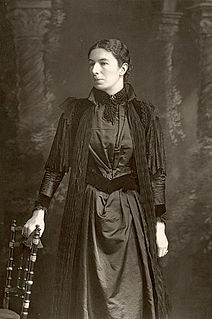A Quote by Vladimir Lenin
To decide once every few years which members of the ruling class is to repress and crush the people through parliament-this is the real essence of bourgeois parliamentarism, not only in parliamentary- constitutional monarchies, but also in the most democratic republics.
Related Quotes
Some countries have a parliamentary republic, some are presidential republics and some are still monarchies, but no one sees them as not being democratic. In some countries regional leaders are appointed from the centre and in others they are elected. In Russia, the president is elected through direct secret ballot, and in the United States, the president is elected through a system of electoral colleges.
The history of mankind is a history of the subjugation and exploitation of a great majority of people by an elite few by what has been appropriately termed the 'ruling class'. The ruling class has many manifestations. It can take the form of a religious orthodoxy, a monarchy, a dictatorship of the proletariat, outright fascism, or, in the case of the United States, corporate statism. In each instance the ruling class relies on academics, scholars and 'experts' to legitimize and provide moral authority for its hegemony over the masses.
...it happens that society is saved as often as the circle of its ruling class is narrowed, as often as a more exclusive interest asserts itself over the general. Every demand for the most simple bourgeois financial reform, for the most ordinary liberalism, for the most commonplace republicanism, for the flattest democracy is forthwith punished as an assault upon society and is branded as Socialism.
There should be some other provisions in the Constitution whereby if the Government is not functioning well, it can be dealt with. In a parliamentary democracy, this should be done only by Parliament. The prime minister should be answerable only to Parliament and it should only be Parliament that can install him or remove him.
That was always what I felt was the beauty of Rock 'n' Roll, it was entertainment and showbiz yet it had the idea of the voice of the people, it had an essence to it which was socially motivated. Not that I want to change to world, you know? But it was sort of relevant to real life, it involved the real essence of poetry or the real essence of fine art. But it was also entertainment. That was the real vitality.
The ideas of the ruling class are in every epoch the ruling ideas, i.e. the class which is the ruling material force of society, is at the same time its ruling intellectual force. The class which has the means of material production at its disposal, has control at the same time over the means of mental production, so that thereby, generally speaking, the ideas of those who lack the means of mental production are subject to it. The ruling ideas are nothing more than the ideal expression of the dominant material relationships, the dominant material relationships grasped as ideas.
Republics demanded virtue. Monarchies could rely on coercion and "dazzling splendor" to suppress self-interest or factions; republics relied on the goodness of the people to put aside private interest for public good. The imperatives of virtue attached all sorts of desiderata to the republican citizen: simplicity, frugality, sobriety, simple manners, Christian benevolence, duty to the polity. Republics called on other virtues--spiritedness, courage--to protect the polity from external threats. Tyrants kept standing armies; republics relied on free yeomen, defending their own land.
Can we say that the constitutional monarchies in Spain, Belgium or England are democratic? Those with superior chambers like the House of Lords in England, that still represent the English feudal nobility in terms of positions above regional representatives, who are in the end the representatives supposedly elected by the population. Many mechanisms exist, but they are mechanisms to preserve the power of the wealthy classes, of the bourgeois classes that hold the power and rights above the rest of the society.






































